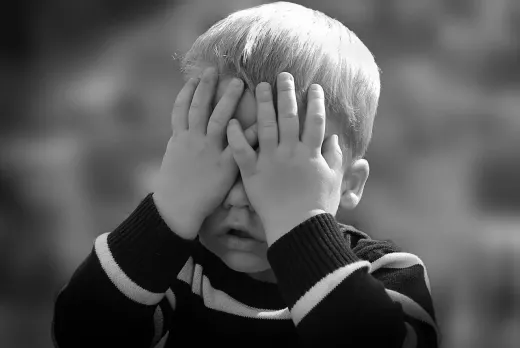Types of anxiety disorders
There are several types of anxiety disorders, each with unique symptoms and causes. Generalized Anxiety Disorder (GAD), Panic Disorder, Social Anxiety Disorder (SAD), and Obsessive-Compulsive Disorder (OCD) are the most common types of anxiety disorders.
GAD is characterized by excessive worry and anxiety about everyday life events and activities, such as work, finances, and health. Panic Disorder is characterized by sudden and intense panic attacks that can occur without warning. SAD is an extreme fear of social situations and interactions with others, while OCD is characterized by persistent, unwanted thoughts and repetitive behaviors.
Each type of anxiety disorder may require different treatments and coping mechanisms, so it is important to identify which type of anxiety disorder a person is experiencing.
Symptoms of anxiety disorders
The symptoms of anxiety can be physical, emotional, or behavioral, and they can vary from person to person. Some common physical symptoms of anxiety include sweating, trembling, rapid heartbeat, and shortness of breath. Emotional symptoms of anxiety may include feelings of fear, panic, and unease. Behavioral symptoms of anxiety may include avoidance of certain situations or interactions with others.
It is important to note that anxiety symptoms can be mild or severe, and can occur in response to specific situations or events, or they may be present all the time. If a person experiences persistent anxiety symptoms that interfere with daily life, they may have an anxiety disorder.
Causes of anxiety disorders
Anxiety can be caused by a variety of factors, including genetics, environmental factors, and life experiences. Some people may be more prone to anxiety due to their genetic makeup, while others may develop anxiety as a result of traumatic life experiences or stressful situations. Environmental factors such as exposure to violence or abuse, or living in poverty, can also contribute to the development of anxiety disorders.
It is important to note that anxiety disorders are not caused by personal weakness or a lack of willpower, and they cannot be cured by simply "toughening up" or "getting over it". Anxiety disorders are real medical conditions that require treatment and support.
Risk factors for anxiety disorders
Certain factors may increase a person's risk of developing an anxiety disorder. These risk factors may include a family history of anxiety or other mental health conditions, exposure to stressful or traumatic life events, chronic medical conditions, or substance abuse.
It is important to note that having one or more risk factors does not necessarily mean that a person will develop an anxiety disorder, but it is important to be aware of these risk factors and to seek help if anxiety symptoms begin to interfere with daily life.
Diagnosis and treatment of anxiety disorders
Diagnosing an anxiety disorder typically involves a thorough evaluation of a person's symptoms and medical history. A healthcare professional may also perform a physical exam or order laboratory tests to rule out any underlying medical conditions that may be causing anxiety symptoms.
Treatment for anxiety disorders may involve a combination of medication, therapy, and lifestyle changes. Medications such as antidepressants or anti-anxiety medications may be prescribed to help manage symptoms, while therapy such as cognitive behavioral therapy (CBT) or exposure therapy may be used to help a person learn new coping skills and manage anxiety.
Lifestyle changes such as regular exercise, healthy eating, and stress management techniques such as meditation or deep breathing may also be recommended to help manage anxiety symptoms.
Coping mechanisms for anxiety
In addition to professional treatment, there are several effective coping mechanisms that can help manage anxiety symptoms. These may include practicing mindfulness and relaxation techniques, engaging in regular exercise or physical activity, getting enough sleep, and avoiding alcohol and caffeine.
It is also important to identify and avoid triggers that may worsen anxiety symptoms, such as certain social situations or stressful events. Developing a strong support network of friends and family members who understand and can provide emotional support can also be helpful for managing anxiety.
How to support someone with anxiety
Having a loved one with an anxiety disorder can be challenging, but there are several ways to provide support and help them manage their symptoms. It is important to listen without judgment and offer reassurance and encouragement.
Encouraging them to seek professional help and providing practical support such as transportation to appointments or help with daily tasks can also be helpful. It is important to educate yourself about anxiety and its symptoms, and to avoid minimizing or dismissing a person's feelings or experiences.
Anxiety and mental health stigma
Despite the prevalence of anxiety, mental health stigma can make it difficult for people to seek help and support. Many people may feel ashamed or embarrassed about their anxiety, or may fear being judged or misunderstood by others.
It is important to remember that anxiety is a real medical condition that requires treatment and support, and that seeking help is a sign of strength and courage.











